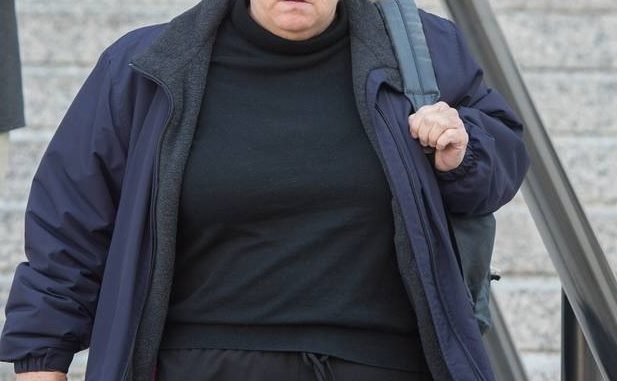

Judge Valerie Caproni
The Southern District of New York is well-known to be the most corrupt Federal Court in the U.S. The removal of two Judges due to a conflict of interest or at least the appearance of impropriety puts this issue – Court corruption and judicial independence – into the public domain. In the Kane and Keil cases filed to defend NYC employees who have been placed on leave without pay since October 4, or fired for not getting vaccinated against the COVID-19 virus under the NYC Vaccine Mandate, the first Judge appointed to be on these cases was Judge Valerie Caproni. I was asked to submit an Affidavit: Betsy’s Declaration. After Judge Caproni was found to be a stockholder in Pfizer stock, she recused herself. Judge Edgardo Ramos was appointed, but also recused himself, and Judge Naomi Buckwald was next to be appointed, but has said she will stay on the bench to decide this case.

Court corruption is very serious, as it involves justice, due process, fraud, theft, and violation of basic American rights. See:
Corruption, Human Rights, and Judicial Independence
By Special Rapporteur Diego García-Sayán
The Honourable Diego Garcia-Sayán acts as the United Nations Special Rapporteur on the Independence of Judges and Lawyers. He was a judge of the Inter-American Court of Human Rights and was elected Vice-President of the Court from 2008 to 2009 and President of the Court for two consecutive terms. He previously served as Peru’s Minister of Justice and Minister of Foreign Affairs. Garcia-Sayán recently shared his views on corruption and judicial independence with UNODC as part of the Organization’s on-going work on promoting judicial integrity. All opinions expressed in this piece are solely those of the author as an external expert and do not necessarily reflect the official position of UNODC.
“Corruption has a direct impact on the validity of human rights, largely because of two reasons.
On one side, corruption deprives societies of important resources that could be used for basic needs, such as public health, education, infrastructure, or security. The OECD has indicated that the cost of corruption, in its different modalities, constitutes more than 5% of the global GDP.
On another side, corruption has direct damaging consequences in general on the functioning of state institutions, and in particular on the administration of justice. Corruption decreases public trust in justice and weakens the capacity of judicial systems to guarantee the protection of human rights, and it affects the tasks and duties of the judges, prosecutors, lawyers, and other legal professionals.
By seeking impunity, corruption has a devastating effect on the judicial system as a whole. One of the goals of human rights is to fight corruption and its implications on the administration of justice, as is to act against corruption through an independent and strong administration of justice. For this, the United Nations Convention against Corruption is a fundamental instrument for the protection of human rights.
In my report presented last year at the General Assembly, I established that “as a key tool to fight against corruption, the Convention should also be considered as a fundamental international instrument for the protection of human rights, and that it should merit, consequently, the permanent attention of the bodies competent in this matter”. [1]
Corruption in the Judicial System
Corruption undermines the core of the administration of justice, generating a substantial obstacle to the right to an impartial trial, and severely undermining the population’s trust in the judiciary.
Corruption has a variety of faces, bribery being only one of them, another being political corruption, much more unattainable and imprecise. Its broad range of action enables it not only to influence the judicial system, but all the sectors of state administration as well.
Illicit interferences with justice can also be violent, particularly when perpetrated directly by members of organised crime. These forays are intended to secure specific objectives, such as the closing of a particular case, or the acquittal of a given individual.
Corruption and the Historical Responsibility of Justice
Internal norms in different states and several relevant international instruments establish different ranges of obligations to confront corruption. However, while judicial systems are themselves the target of corruption and organised crime, it is precisely within judicial systems that societies have their main instrument to prevent and fight corruption.
Article 11 of the United Nations Convention against Corruption – a fundamental international treaty – emphasizes the decisive role of the judicial branch in the fight against corruption, and establishes that in order to carry out this role effectively, the judicial branch itself must be free of corruption, and that its members must act with integrity. Substantive guidelines on matters of internal organization, which are fundamental to prevent and confront corruption, have been included in the Convention.
There are core obligations in the Treaty on international cooperation between judicial and prosecutorial bodies of sovereign States (Chapter IV) which are unprecedented in a multilateral treaty. For example, it contains substantive and operational obligations in extradition matters, the transfer of convicted persons and judicial assistance, referral of criminal proceedings from one country to another, joint investigations, and, in general, clear substantive obligations in matters of cooperation for compliance with the law.
Judicial Integrity and the Fight against Corruption
In 2016, the United Nations Office on Drugs and Crime launched a global programme to promote a culture of lawfulness. It includes the creation of a Global Judicial Integrity Network to share best practices and lessons learned on the fundamental challenges and new questions relating to judicial integrity and the prevention of corruption.
This is an important step for the creation of a common language and a common perspective amongst different domains of the United Nations. In my capacity as Special Rapporteur, I have already expressed my full disposal to collaborate in the implementation of this programme.”
[1] United Nations, A/72/140. 35 July 2017
NYC Teachers Target Third Judge in Vaccine Case Over Drug Stocks
- Case reassigned twice after teachers moved to disqualify for vaccine maker holdings
- Teachers want new judge, Naomi Reice Buchwald, off case for similar holdings in Pfizer, J&J
June 14, 2022, 7:42 PM
New York City teachers want a third federal judge off their pandemic vaccine case over potential stock ownership conflicts, this time for what they say are stakes in Pfizer and Johnson & Johnson.
The teachers asked Judge Naomi Reice Buchwald in the Southern District of New York to recuse herself from their challenge to the city’s Covid-19 vaccine mandate for education workers after she was assigned to the case on Tuesday.
Two other judges at the Manhattan court were off the case after the teachers requested they recuse themselves for similar holdings.
The moves come as judicial stock holdings are under increased scrutiny. A Wall Street Journal report that found at least 131 judges heard cases in which they or a family member had a stock conflict prompted a new federal law requiring judicial financial disclosures be publicly accessible online.
Judge Valerie E. Caproni, the initial judge on the case, recused after the teachers asked her to disqualify herself because of investments in Pfizer. According to her financial disclosure, the teachers said Caproni held between $50,000 and $100,000 in Pfizer stock at the end of 2020.
In a June 11 order, Caproni said the court didn’t believe the case would meaningfully affect the stock value of Pfizer—regardless of the result—but recused anyway “out of an abundance of caution and to avoid even the possible appearance of any bias or prejudice.”
The case was reassigned to Judge Edgardo Ramos, who the teachers also asked to recuse for his holdings in Pfizer, AstraZeneca, and other companies. The case was then reassigned to Buchwald after one day.
Buchwald held Pfizer stock and Johnson & Johnson stock at the end of 2020, the teachers said, citing her financial disclosure.
Buchwald didn’t immediately respond to a request for comment.
The teachers are represented by Nelson Madden Black and the Gibson Law Firm.
The defendants—which include the City of New York, the Board of Education of the School District of New York, and the New York City Department of Education—are represented by the New York City Law Department.
The consolidated cases are Kane et al v. de Blasio et al, S.D.N.Y., No. 21-cv-07863, plaintiff’s motion to disqualify 6/14/22 and Keil et al v. The City of New York et al, S.D.N.Y., No. 21-cv-08773, plaintiff’s motion to disqualify 6/14/22.
To contact the reporter on this story: Madison Alder in Washington at malder@bloomberglaw.com
To contact the editors responsible for this story: Seth Stern at sstern@bloomberglaw.com; John Crawley at jcrawley@bloomberglaw.com
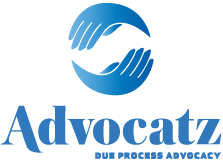
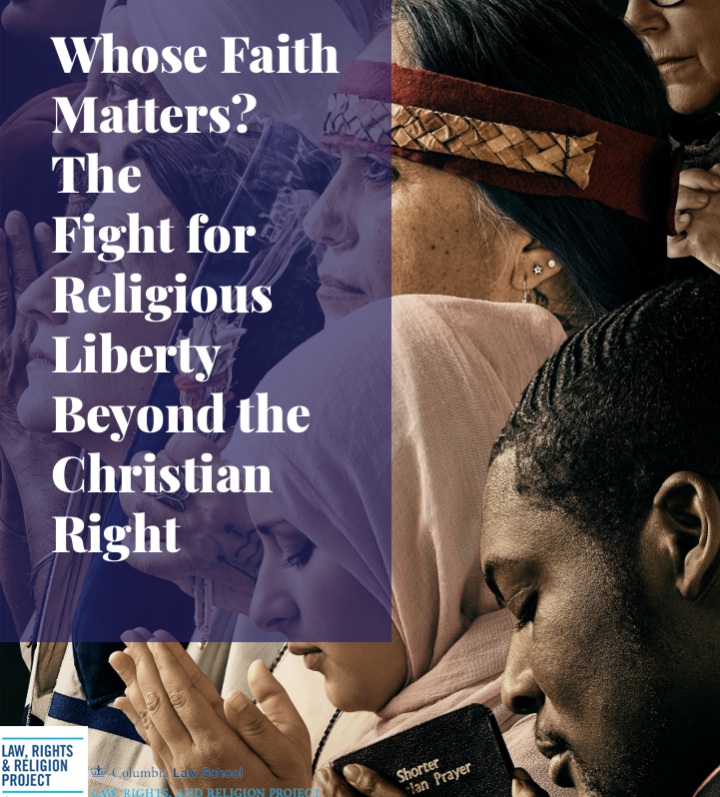
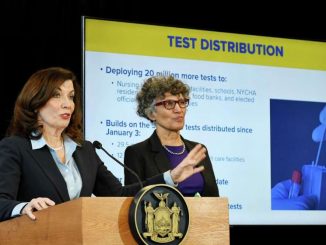
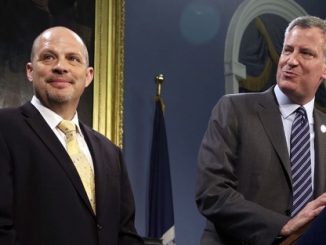
Be the first to comment